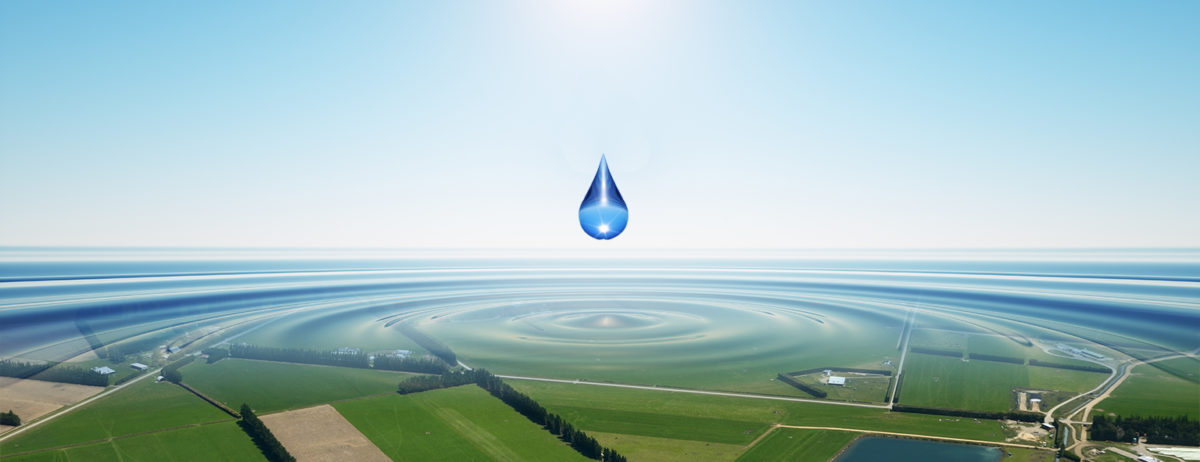New Zealand is already paying heavily for climate change – about $800 million from droughts and $140 million from floods in the last decade – scientists say in an article published by the New Zealand Herald.
The authors argue that the costs of climate change are hitting us now and may have been previously underestimated.
Their article is the newspaper’s contribution to this week’s international media campaign Covering Climate Now.
It has been written by the director of the New Zealand Climate Change Research Institute at Victoria University Professor Dave Frame, and his colleagues, Professor Ilan Noy (Victoria) and Dr Suzanne Rosier (NIWA).
They say New Zealand has experienced three significant droughts over the past 12 years and many damaging storms and extreme rainfall events. Some of these have been linked to the influence of climate change.
The article says:
In New Zealand, scientists have been able to quantify the effects of climate change on extreme rainfall and drought events. For example, scientists estimate that climate change contributed significantly to the extreme rainfall experienced in Northland in 2014, nearly doubling the odds of such an event.
Droughts are a bit more difficult because they can be measured in different ways and this affects the answers we get. The odds of the weather patterns that characterised the 2012/13 drought were between 10-40 per cent more likely because of climate change, with some of the breadth in the range arising from choices about definitions.
One especially useful aspect of this research is that it allows scientists to quantify the contribution from climate change to an extreme weather event, but also, when we know the cost of the associated disaster, to quantify the climate change component of those costs. These calculations then provide us with the price tag of climate change, through its impact on extreme weather events.
Researchers from Victoria University of Wellington and NIWA, and overseas partners at Lawrence Berkeley National Lab and the University of Oxford in recent years have been calculating these price tags.
Two papers published this month examine events in New Zealand and Texas.
The New Zealand Treasury estimated that the 2007/08 and 2012/13 droughts jointly reduced GDP in New Zealand by around $4.8 billion. We estimate that around $800 million of this cost is due to climate change. For New Zealand floods, the most costly 12 extreme weather events that caused flooding in the period 2007-18, contributed around $140 million in insurance losses that were caused because of the higher concentration of greenhouse gases in the atmosphere (because of climate change). The main insight here is that event attribution is showing that climate change is already causing significant losses to New Zealand. Climate change is not only a future problem, but it is costing us here and now.
We also looked at the human climate change fingerprint on the damages associated with Hurricane Harvey that hit Houston, Texas, in 2017 with torrential rain and extensive flooding. The results are striking: we estimate that around US $67 billion of the Hurricane’s overall US $90 billion are associated with climate change.
This is a far higher estimate than that which would be obtained from conventional economic models for the cost of climate change in the US, such as in the model built by Nobel Prize winner William Nordhaus.
The article references an American study in 2017 which applied Nordhaus’s model and predicted total economic costs to the US economy in 2017, from climate change, to be around US$20 billion.
Yet we find US$67 billion from a single event, in one big city, over a five day period. Huge storms such as Harvey are mercifully rare; but Harvey was one of four major hurricanes that made landfall in the U.S. that year.
The New Zealand researchers say their approach provides a more forensic quantification of human influence on extreme events that can help in several ways.
Among them, it can be useful for policymakers who are trying to understand how much should be spent on efforts to curb greenhouse gas emissions.
The authors say their research is just a step along the road to developing a more detailed understanding of the economic costs attributable to climate change. In the long run, they say, the integration of quantitative social science and climate change event attribution will help decision-makers have a richer, better and more accurate understanding of the effects of climate change on the economy.
Source: New Zealand Herald












